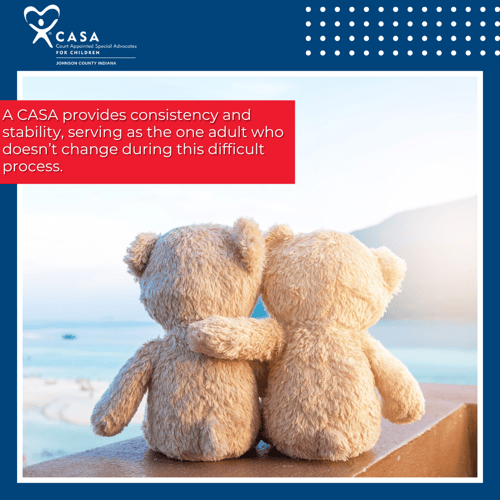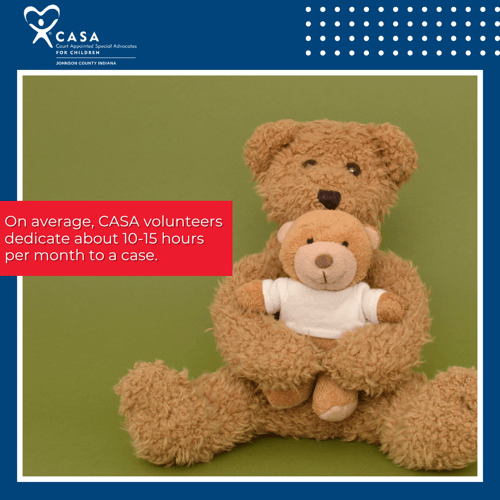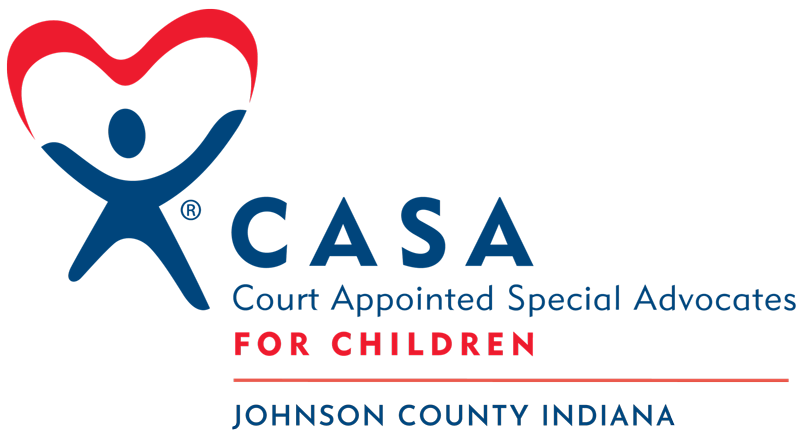The Top 5 Questions People Ask Before Becoming a CASA Volunteer
October 31, 2025 •Johnson County CASA
.png?height=630&name=Featured%20Images%20%20(8).png)
Becoming a Court-Appointed Special Advocate (CASA) volunteer is one of the most impactful decisions a person can make. By stepping into the role of a CASA, you're not just offering your time, you're offering a lifeline to a child navigating the complexities of the child welfare system. If you're considering this meaningful journey with CASA of Johnson County, Indiana, you're not alone. Here are the top five questions prospective volunteers ask; along with a sixth, often unspoken, concern we think is just as important to address.
1. Is a long-term commitment required, like one year or more?
Yes. CASA volunteers are asked to commit to staying with their assigned case until it closes, which is often around 12 to 18 months. This is crucial for the child involved, who may experience frequent changes in placements, caseworkers, or caregivers. A CASA provides consistency and stability, serving as the one adult who doesn’t change during this difficult process.
While this may sound like a big commitment, most volunteers find it deeply rewarding and manageable alongside their other responsibilities. Many say they continue volunteering well beyond their first case.
Learn more about what volunteering looks like with CASA of Johnson County.
2. Are there ongoing or in-service training requirements?
Yes. In addition to the roughly 30-hour pre-service training required before you begin, CASA volunteers complete 12 hours of in-service training annually. These sessions help deepen your understanding of child welfare, trauma, cultural competency, legal updates, and more.
CASA of Johnson County provides in-person and virtual training options, ensuring you can meet your requirements in a way that fits your schedule. Support doesn’t stop after training, we walk alongside you the entire way.
Explore more about our child advocate training process.
3. What qualifications or background do I need to become a CASA?
You don’t need to be a lawyer or a social worker to make a difference. In fact, our volunteers come from a wide variety of professions and life experiences. What matters most is your commitment to advocating for a child’s best interests.
That said, all CASA volunteers must:
- Be at least 21 years old
- Complete an application and personal interview
- Pass a criminal background check, DCS check, and reference checks
If you have past experiences with trauma, recovery, or involvement in the child welfare system, that doesn't automatically disqualify you. In fact, those experiences often add to your empathy and insight. We encourage you to contact CASA to discuss your unique background.
4. Will I be assigned a child right away after training?
Once you complete your training and background checks, you’ll be eligible to receive a case. Some volunteers begin almost immediately, while others may wait a few weeks depending on timing and case needs.
To get a clearer idea of the children we serve, visit Who We Serve.
5. How much time does being a CASA volunteer take?
On average, CASA volunteers dedicate about 8-10 hours per month to a case. This time includes meeting with the child, speaking to teachers or caseworkers, writing reports, and attending court hearings.
While court appearances are scheduled during business hours, other responsibilities can be completed in the evenings or weekends. We encourage volunteers to build a schedule that works for them and their assigned child.
Being consistent is more important than being perfect. Every hour you give makes a tangible difference.
Bonus Question: Is being a CASA volunteer safe?
This is a common, and completely valid, question. While CASA volunteers sometimes work with families during difficult and emotional situations, your safety is always a top priority.
You are never expected to meet with families in private or unsafe settings. We strongly encourage meetings and visits to occur in public, well-planned spaces, such as schools, libraries, or supervised visit centers. While CASA Volunteers will have to visit homes to make sure conditions are safe and appropriate for children to return to, volunteers work alongside a team of DCS and several other DCS contracted service providers. If safety is a concern, CASA Volunteers are always encouraged to schedule those visits at times when other members of the team are also present so they will not be alone.
Your well-being is as important as the child’s.
Final Thoughts: Is CASA Right for You?
Choosing to become a CASA volunteer is not just about giving, it’s also about growing. You’ll gain invaluable experience, connect with compassionate professionals, and most importantly, change the course of a child's life.
As Jeri-Lynn Line, one of our dedicated volunteers, puts it:
“Being a CASA volunteer allows me to use my passion for helping abused and neglected children by giving them a voice in court.
Children with CASAs are less likely to spend long periods of time in foster care, are more likely to find a permanent home and not re-enter foster care, and are more likely to excel in school.
Input from CASA volunteers assists the Court in making sound decisions for providing safe and permanent homes and ending the cycle of abuse and neglect for at-risk children. Become a CASA! Give a child hope and help make a positive difference in their future!”
Still have questions? Explore more about the impact of volunteering.
Ready to Be the Voice a Child Needs?
Volunteering as a CASA in Johnson County takes just a few hours each month, but the difference you make can last a lifetime.
Apply to become a CASA volunteer today and help guide a child to a brighter future.
Every child deserves a champion. Will it be you?

